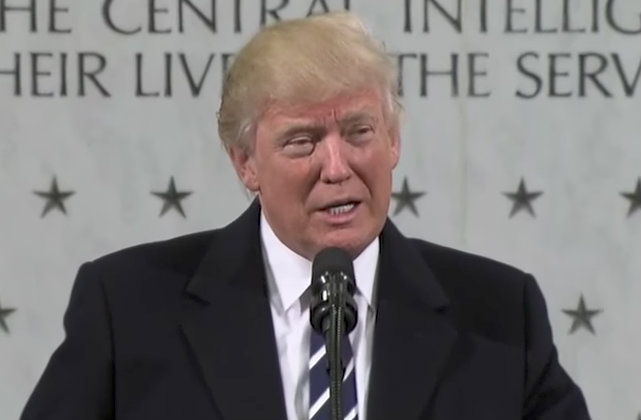 The U.S. Department of Justice said in a court filing on Wednesday that just because the president tweets something about them, that doesn’t make it true. The filing is part of a Freedom of Information Act case brought by the James Madison Project and Politico reporter Josh Gerstein over documents related to the notorious and unverified Russian dossier on Donald Trump.
The U.S. Department of Justice said in a court filing on Wednesday that just because the president tweets something about them, that doesn’t make it true. The filing is part of a Freedom of Information Act case brought by the James Madison Project and Politico reporter Josh Gerstein over documents related to the notorious and unverified Russian dossier on Donald Trump.
This latest filing deals with a tweet President Trump posted on December 26, 2017, in which he said that the FBI is unable to confirm the details of the dossier.
WOW, @foxandfrlends “Dossier is bogus. Clinton Campaign, DNC funded Dossier. FBI CANNOT (after all of this time) VERIFY CLAIMS IN DOSSIER OF RUSSIA/TRUMP COLLUSION. FBI TAINTED.” And they used this Crooked Hillary pile of garbage as the basis for going after the Trump Campaign!
— Donald J. Trump (@realDonaldTrump) December 26, 2017
The FOIA request covered documents related to (among other things) “final determinations regarding the accuracy (or lack thereof) of any of the individual factual claims listed in the two page synopsis [of the dossier]” and “investigative files relied upon in reaching the final determinations[.]”
The James Madison Project argues that by saying that the FBI can’t verify the claims in dossier, he waived the DOJ’s Glomar response to these parts of the FOIA request. A Glomar response, also known as Glomarization, is basically when the government says “No comment,” to a FOIA request, because a confirmation or denial of something would itself be considered information that is exempt from FOIA. The idea is that the DOJ didn’t want to respond to a request regarding final determinations, because that would indicate that a final determination had been made. The argument was that when Trump said that the FBI cannot verify the dossier’s claims, he revealed that a determination had in fact been made, so the DOJ could no longer use Glomarization for this.
The DOJ’s filing on Wednesday says this just isn’t the case, and that just because Trump said that they “CANNOT (after all of this time) VERIFY CLAIMS,” that is not the same as an official statement saying that a final determination has been made on the matter one way or the other. The DOJ dismissed Trump’s tweet as merely a response to a news article that was mentioned on Fox & Friends.
Interestingly enough, the DOJ’s guidance on “Glomarization” was “temporarily unavailable” at the time of this writing. Google’s cached version of the page says it’s from January 1, 2018, just two days before the filing. That guidance, which was first published on January 1, 1986, said, “Such an extraordinary response can be justified only when the confirmation or denial of the existence of responsive records would, in and of itself, reveal exempt information.”
Brad Moss, an attorney who represents Gerstein and the James Madison Project in this case, was not impressed by the DOJ’s apparent insistemce that Trump’s comments should not be taken as official word.
“The Government remains committed to its current legal position that official statements by the President do not reflect anything about Government action unless the President’s remarks actually say they do,” Moss told Law&Crime. “Put another way, assume the President is just ‘riffing’ unless he tells you otherwise.”
Response 1.3.18 by LawNewz on Scribd
[Image via CNN screengrab]